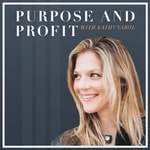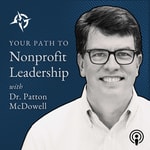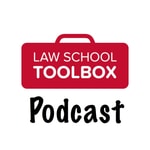Purpose and Profit with Kathy Varol – Details, episodes & analysis
Podcast details
Technical and general information from the podcast's RSS feed.

Purpose and Profit with Kathy Varol
Kathy Varol
Frequency: 1 episode/14d. Total Eps: 101

Recent rankings
Latest chart positions across Apple Podcasts and Spotify rankings.
Apple Podcasts
🇫🇷 France - management
04/03/2025#79🇫🇷 France - management
03/03/2025#68🇫🇷 France - management
02/03/2025#54🇫🇷 France - management
01/03/2025#41🇫🇷 France - management
05/02/2025#92🇫🇷 France - management
04/02/2025#75🇫🇷 France - management
03/02/2025#53🇫🇷 France - management
02/02/2025#39🇫🇷 France - management
23/01/2025#92🇫🇷 France - management
22/01/2025#66
Spotify
No recent rankings available
Shared links between episodes and podcasts
Links found in episode descriptions and other podcasts that share them.
See all- https://www.effectivealtruism.org/
699 shares
- https://jamesclear.com/atomic-habits
569 shares
- https://ouraring.com/
546 shares
RSS feed quality and score
Technical evaluation of the podcast's RSS feed quality and structure.
See allScore global : 78%
Publication history
Monthly episode publishing history over the past years.
98. Anastasia Volkova on Decarbonizing the Agriculture Value Chain
Season 1 · Episode 98
mercredi 1 janvier 2025 • Duration 57:14
Dr. Anastasia Volkova is the CEO and Co-founder of Regrow Ag, a software company specializing in scalable decarbonization solutions for agriculture, using satellite imagery and proprietary biogeochemical modeling to measure and reduce scope 3 emissions on farms. Operating globally with over 100 customers—including General Mills, Nestle, Kellogg and Unilever—and monitoring 10%+ of the world’s arable land, Regrow aims to be a one-stop shop for the agriculture industry’s climate needs.
Anastasia has a PhD in Aerospace Engineering from the University of Sydney. She is also a member of the Forbes Technology Council, a TEDx speaker, and the recipient of multiple awards and honors, including MIT's Innovators Under 35, BBC's 100 Women 2020, UBS Global Visionary, and Bloomberg's New Economy Catalyst.
In this episode, we discuss:
● How Anastasia went from a PhD in Aerospace Engineering to focusing on agriculture
● Why some widespread agricultural practices need updating
● How to create a more resilient food system
Key Takeaways:
● The Compounding Effects of Our Actions: Actions don’t exist in a vacuum—they compound over time, for better or worse. Agriculture provides a stark example of this.. Conventional practices that release significant greenhouse gases year after year contribute to climate change, creating extreme and unpredictable weather that destabilizes food production. This instability carries immense direct and indirect costs for society. The more we continue down this path, the worse it will become. On the flip side, investing in regenerative practices—while requiring upfront investments—yields compounding positive effects over time. These practices not only help mitigate climate change but also build a resilient food system that can sustain future generations. The key is zooming out to understand how the long-term impacts of today’s choices ripple far into the future.
● The Beauty of an Unscripted Journey: The most fascinating career paths are rarely linear. Anastasia’s academic and professional journey is a testament to the beauty of following your interests, even when the destination isn’t clear. Sometimes, this meandering path leads to creating something entirely new—something that didn’t exist before. Letting go of the notion that your career should follow someone else’s trajectory is liberating. Each of us is meant to carve out our own way, and as we move forward the uniqueness of our path becomes more evident. So, embrace the unexpected turns and trust that your journey will lead down the road that was meant for you.
● Transforming Tradition Through Innovation: Rice paddy cultivation has long been a symbol of timeless tradition—a picturesque image etched into collective memory. Yet, even centuries-old practices aren’t immune to the transformative power of innovation. It’s wild to think that after so many generations, there could be a better way to cultivate rice, a way that challenges the norm and improves upon it. That’s the magic of innovation: it takes what seems fixed and familiar and reimagines it, creating something better. Whether it’s rice paddies or any other deeply ingrained system, innovation reminds us that progress is always possible, and the status quo is just a starting point.
References:
● Connect with Anastasia on LinkedIn
● Case study on Regrow’s partnership with General Mills
● Press release on the General Mills/Walmart regenerative agriculture partnership
● Case study on Regrow’s partnership with Cargill
● Case study on Regrow’s partnership with Netafim
Connect & Share:
If you enjoy the podcast, would you please consider leaving a short review on Apple Podcasts/iTunes? It takes less than 60 seconds, and it really makes a difference in helping to convince hard-to-get guests. I also love reading them!
If this episode resonated with you, I ask you to send it to a friend. Help bring even more visibility to these leaders that are using business as a force for good!
Subscribe to the Purpose and Profit newsletter to make sure you don’t miss future episodes.
This podcast is for you, the listener. I’d love to hear what resonated with you, or if you have a suggestion on who would be a great guest for this show. Please send me a note at [email protected].
97. Chris Kanik on Changing the World One Cup at a Time
Season 1 · Episode 97
mercredi 18 décembre 2024 • Duration 35:08
Chris Kanik is the CEO and Founder of Smart Cups, a sustainability-driven technology company that achieved global recognition with its flagship product—a printed energy drink. All of the flavors and ingredients are printed on the button of a cup, just add water. The Smart Cups printed technology eliminates the need to bottle and ship liquids, significantly reducing carbon footprint.
Smart Cups Technology was recognized on Time Magazine's 100 Best Inventions of the Year list for 2021. Chris also gained global exposure for Smart Cups by winning Season 1 of Gordon Ramsay's Food Stars, securing a $250,000 investment from Gordon Ramsay himself.
In this episode, we discuss:
● The inspiration for Smart Cups
● Why Smart Cups is pursuing a white-label strategy
● The reasoning behind releasing an energy drink as their first product
Key Takeaways:
● A Simple Truth with Big Ripples: Smart Cups is tackling a profound yet simple truth: shipping water as a primary ingredient in products is unnecessary. By letting the end consumer add water themselves, industries can slash emissions from transporting heavy, water-laden goods. Think of the potential impact across sectors—soft drinks, laundry detergents, cleaning supplies, shampoos, conditioners—the list is endless. This shift doesn’t just cut emissions; it reimagines how products are made, sold, and consumed.
● Awareness as the Seed of Change: Actions drive change, but awareness is often the spark that starts it all. Awareness has the power to shift perspectives and open minds, creating a ripple effect that spreads through society. As more people become aware, the momentum grows, leading to collective action that can transform entire systems. Awareness isn’t just a passive state—it’s the ignition point for meaningful change.
● The Unexpected Doorway to Innovation: Innovation can strike at the most unexpected times. Often, the doorway to innovation opens through frustration with the status quo or daydreaming about what could be. For Smart Cups, the doorway to innovation happened at a Taco Tuesday. When you find that doorway, let your imagination wander through it. You never know where it might lead—perhaps to a transformative idea that changes how we live.
References:
● Connect with Chris on LinkedIn
● The Smart Cups investment offering on StartEngine
● UCLA paper: “Reducing life cycle material, energy and emissions for liquid consumer products through printing”
● “The Best Inventions of 2021”, Time Magazine
Connect & Share:
If you enjoy the podcast, would you please consider leaving a short review on Apple Podcasts/iTunes? It takes less than 60 seconds, and it really makes a difference in helping to convince hard-to-get guests. I also love reading them!
If this episode resonated with you, I ask you to send it to a friend. Help bring even more visibility to these leaders that are using business as a force for good!
Subscribe to the Purpose and Profit newsletter to make sure you don’t miss future episodes.
This podcast is for you, the listener. I’d love to hear what resonated with you, or if you have a suggestion on who would be a great guest for this show. Please send me a note at [email protected].
88. Julia Marsh on Seaweed-Based Plastic Packaging
Season 1 · Episode 88
mercredi 14 août 2024 • Duration 39:18
Julia Marsh is the CEO and co-founder of Sway, a clean tech startup scaling seaweed-based, home-compostable packaging. Sway’s patented products match the vital performance attributes of conventional plastics and are designed to plug into existing infrastructure, enabling scale and massive impact. Julia’s work is driven by a deep passion for regenerative design and biological circularity.
In 2023, Sway won first place in the TOM FORD Plastic Innovation Prize. In 2021, Sway also won the Beyond the Bag Challenge sponsored by Closed Loop Partners and a consortium of major retailers. Sway’s solutions have garnered recognition from Vogue, Condé Nast, Forbes, Business Insider, and Fast Company. As a member of the Sustainable Packaging Coalition, the Sustainable Ocean Alliance, and 1% for the Planet, Sway is working holistically to scale their product for a thriving, equitable future.
Learn more at swaythefuture.com.
In this episode, we discuss:
● Why recycling won’t fix our plastic problem
● The properties of seaweed that make it a flexible plastic film substitute
● The “Amazon Rainforest” ecosystem you never considered
Key Takeaways:
● Seamless Integration for Easy Adoption: Introducing a new material into established supply chains and factory processes can be challenging. Take a page out of the Sway playbook. If possible, create a plug-and-play solution that works with existing machinery. This lowers the barrier for manufacturers to test and adopt the new product, making it significantly easier to scale and implement across their industry.
● Understanding Product Lifecycles: To truly grasp the benefits and costs of any product, it’s crucial to examine its entire lifecycle. Take plastic, for example. The visible litter on beaches is just the tip of the iceberg. Microplastics in our oceans and bloodstreams are harming marine life and human health. The environmental impact of extracting petroleum for plastic production, and the long-lasting waste clogging our landfills, are often hidden from view but equally damaging. Out of sight should not mean out of mind—these unseen costs are critical to our understanding of plastic's true impact.
● The Power of Innovative Thinking: We need more people like Julia innovating new ways to do things. People who question the status quo. People who notice the cost of continuing to do things the same way, and aren’t ok with that cost. People that are curious enough to lean in, tinker, and innovate new solutions that are better for everyone. The next time you notice something off, don’t dismiss it. Instead, explore it—maybe you’re the one who will come up with the next groundbreaking solution. Your curiosity could lead to innovations that make a better future.
References:
● Connect with Julia on LinkedIn
● Sway
○ Keep up with Sway on Instagram
● Tom Ford Plastic Innovation Prize
Connect & Share:
If you enjoy the podcast, would you please consider leaving a short review on Apple Podcasts/iTunes? It takes less than 60 seconds, and it really makes a difference in helping to convince hard-to-get guests. I also love reading them!
If this episode resonated with you, I ask you to send it to a friend. Help bring even more visibility to these leaders that are using business as a force for good!
Subscribe to the Purpose and Profit newsletter to make sure you don’t miss future episodes.
This podcast is for you, the listener. I’d love to hear what resonated with you, or if you have a suggestion on who would be a great guest for this show. Please send me a note at [email protected].
87. Dalila Wilson-Scott on the Holistic Approach to Diversity & Social Impact
Season 1 · Episode 87
mercredi 31 juillet 2024 • Duration 01:01:17
Dalila Wilson-Scott serves as Executive Vice President and Chief Diversity Officer of Comcast Corporation, and President of the Comcast NBCUniversal Foundation. Dalila oversees all Diversity, Equity & Inclusion initiatives and philanthropic strategy with a focus on advancing digital equity and economic mobility through Project UP, which is supported by a $1 billion commitment.
In 2023, Dalila was honored as WICT Woman of the Year in recognition of her work developing women leaders who transform the media, entertainment and technology industry. She has been named one of the “Most Powerful Women in Cable” by Cablefax Magazine; one of the “Most Powerful Women in Business” by Black Enterprise; and an “Innovative Rising Star: Building Communities” by Forbes magazine among other honors.
In this episode, we discuss:
● The importance of data and transparency in DEI
● 3 key lessons for running a Foundation
● Looking at diversity through a holistic business lens to include employees, suppliers, customers, and product creation
Key Takeaways:
● Diversity: It's Not Just Business, It's Human: I’m done debating the business case for diversity—it's crystal clear, yet it hasn't solved the leadership imbalance. Let's focus on the human case. Look around the C-suites of S&P 100 companies: 70% of executives are white men, while they make up only 30% of the US population. Despite progress in diversifying executive teams over the past decade, these numbers don’t lie. Our system is still broken. It’s past time to fix a system that continues to perpetuate unfairness and bias, not just because diversity is proven to be good for business, but because it’s the right thing to do. Let’s not hide the need for fairness, justice, and ethics behind a business case.
● Building Solutions Through Continuous Listening: Listening to the people you aim to serve is crucial, and it’s not a one-time act—it’s an ongoing practice. This dialogue informs how programs need to evolve to meet changing needs. When you continuously listen and adapt, you build solutions that resonate and have lasting impact. It’s about creating a dynamic partnership with those you serve.
● The Importance of Community: The power of community cannot be overstated. We know the phrase “it takes a village”. This principle extends across all areas of life. Small businesses supported by their communities are more likely to succeed. Families with community support are more likely to thrive. Individuals who feel part of a work community are more likely to flourish. Humans are social creatures; we struggle in isolation but thrive when we come together. Building and nurturing community bonds is key to collective success and well-being.
References:
● Connect with Dalila Wilson-Scott on LinkedIn
● Comcast
Connect & Share:
If you enjoy the podcast, would you please consider leaving a short review on Apple Podcasts/iTunes? It takes less than 60 seconds, and it really makes a difference in helping to convince hard-to-get guests. I also love reading them!
If this episode resonated with you, I ask you to send it to a friend. Help bring even more visibility to these leaders that are using business as a force for good!
Subscribe to the Purpose and Profit newsletter to make sure you don’t miss future episodes.
This podcast is for you, the listener. I’d love to hear what resonated with you, or if you have a suggestion on who would be a great guest for this show. Please send me a note at [email protected].
86. Staff Sheehan on Greening the Aviation Fuel Industry
Season 1 · Episode 86
mercredi 17 juillet 2024 • Duration 37:24
Dr. Stafford (Staff) Sheehan is an American scientist, inventor, and entrepreneur at the forefront of the carbon capture and utilization industry. Staff is the Co-founder and CTO of AIR COMPANY, a business converting captured carbon dioxide, water, and electricity into the fuels and chemicals that we get from fossil fuels today. He is the inventor of AIR COMPANY’s core patents and is responsible for the technology and operations of the business. Prior to founding AIR COMPANY, Dr. Sheehan served as the co-founder and CEO of Catalytic Innovations, where he developed electrochemical technologies to reduce energy consumption in refining processes.
Staff was recognized on MIT Technology Review’s Innovators Under 35 in 2023, as one of Chemical & Engineering News Talented 12 in 2017, and a Forbes 30 under 30 in 2016. He received his BS in Chemistry from Boston College and his PhD in Physical Chemistry from Yale University.
In this episode, we discuss:
● Carbon capture and carbon utilization
● The process to create sustainable aviation fuel
● The magic of chemistry
Key Takeaways:
● Circular Economy in Fuel Production: AIR COMPANY is transforming captured carbon from the atmosphere into fuel, creating a circular economy in the fuel industry. When this fuel is burned, the carbon released can be captured again to make more fuel. This closed-loop system is an incredible leap forward in sustainable energy.
● Cutting Costs and Emissions Globally: The ability to create fuel anywhere in the world means we can slash energy use and costs across the supply chain. By producing fuel locally, we eliminate the need for transportation, drastically reducing associated energy use, costs, and emissions. This innovation could revolutionize how we think about energy logistics and help eliminate global conflict over fuel.
● Turning Thin Air into Valuable Resources: Chemistry often feels like magic, and AIR COMPANY's work with carbon capture and utilization truly embodies this. Their work gives the phrase "making something out of thin air" a whole new—literal—meaning as they convert atmospheric carbon into new products like - aviation fuel, perfume, and vodka.
References:
● Connect with Staff on LinkedIn
● To learn more about renewable hydrogen listen to the Purpose and Profit episode with David Reynolds, then Chief Executive of the Department for Trade and Investment for South Australia.
● “$400 per gallon gas to drive debate over cost of war in Afghanistan”, by Roxana Tiron, The Hill, October 16th, 2009
● NASA CO2 Conversion Challenge
Connect & Share:
If you enjoy the podcast, would you please consider leaving a short review on Apple Podcasts/iTunes? It takes less than 60 seconds, and it really makes a difference in helping to convince hard-to-get guests. I also love reading them!
If this episode resonated with you, I ask you to send it to a friend. Help bring even more visibility to these leaders that are using business as a force for good!
Subscribe to the Purpose and Profit newsletter to make sure you don’t miss future episodes.
This podcast is for you, the listener. I’d love to hear what resonated with you, or if you have a suggestion on who would be a great guest for this show. Please send me a note at [email protected].
85. Alex Lauver on Innovating Solutions for a More Sustainable Outdoor Industry
Season 1 · Episode 85
mercredi 3 juillet 2024 • Duration 57:46
Alex Lauver has been in the Outdoor Industry his entire career. Alex is currently Sr Director Materials, Innovation, & Sustainability at Outdoor Research (OR) where he specializes in advanced materials, sustainability, and high-performance apparel.
Since 1981, Outdoor Research has created outdoor apparel, accessories, and equipment for outdoor enthusiasts and military users around the globe with an Infinite Guarantee for their products. Most recently, Outdoor Research has partnered with a chemical company called Nikwax for PFAS free waterproofing, with all of their products transitioning to be free of intentionally added PFAS for Fall 2024 production.
In this episode, we discuss:
● Why PFAS are prevalent in the outdoor industry, and why PFAS are a problem
● The ups and downs of the continually evolving sustainability journey
● Green-washing and green-hushing
Key Takeaways:
● Persistent and Pervasive PFAS: PFAS are notorious for their persistence in the environment and their ability to bioaccumulate in living tissues, including humans, leading to serious health risks. These "forever chemicals" don't break down easily and they’re highly transmissible through air, water, and soil. Because of potential cross-surface contamination, factories aiming to produce PFAS-free materials will most likely need to eliminate PFAS entirely from their processes, a daunting task but one that could trigger a domino effect of widespread adoption of PFAS-free manufacturing.
● Collaboratively Evolving Sustainability: Sustainability is a continuously evolving journey. We learn, test, improve, and then repeat the process. To accelerate collective progress towards a sustainable future, transparency is key. When organizations share their sustainable innovations openly, others can replicate successful strategies and propose even better solutions. Transparency fosters a collaborative environment where sustainable practices can rapidly evolve and improve across many organizations and industries collectively.
● Shifting to Net Positive: Alex pointed out a stark truth: the most sustainable action for companies, as they currently operate, would be to cease business. The black and white truth of this statement illustrates how radically we need to transform our current business approaches. The goal is to shift from a standard and accepted operating model that has a net negative impact on the planet to achieving a net positive impact. This paradigm shift demands a complete overhaul of our current operating methods, pushing us towards innovative, planet-friendly business models.
References:
● Connect with Alex on LinkedIn
● Outdoor Industry Association
● Nikwax
● California AB 1817 “Product safety: textile articles: perfluoroalkyl and polyfluoroalkyl substances (PFAS)”
● bluesign
● International Trade Association page on the Berry Amendment
Connect & Share:
If you enjoy the podcast, would you please consider leaving a short review on Apple Podcasts/iTunes? It takes less than 60 seconds, and it really makes a difference in helping to convince hard-to-get guests. I also love reading them!
If this episode resonated with you, I ask you to send it to a friend. Help bring even more visibility to these leaders that are using business as a force for good!
Subscribe to the Purpose and Profit newsletter to make sure you don’t miss future episodes.
This podcast is for you, the listener. I’d love to hear what resonated with you, or if you have a suggestion on who would be a great guest for this show. Please send me a note at [email protected].
84. Rob Acton on Creating Impact by Serving on a Nonprofit Board
Season 1 · Episode 84
mercredi 19 juin 2024 • Duration 58:03
Rob Acton is the Founder & CEO of Cause Strategy Partners. Through his firm’s signature program BoardLead, Cause Strategy Partners has placed nearly 3,000 professionals in the United States and the United Kingdom on nonprofit boards, while training tens-of-thousands more in high-impact nonprofit board service.
Rob is a recognized expert on nonprofit governance and leadership. He has nearly three decades of experience founding, leading, and scaling social good organizations as both a nonprofit chief executive and board leader. Rob currently chairs the Board of Directors of Broadway Inspirational Voices. His causes are second chances for formerly incarcerated individuals, nonprofit capacity building, and the performing arts.
Rob’s forthcoming book, Becoming a Causie: Champion Your Cause Through Nonprofit Board Leadership will be available for preorders on July 5th and is slated for release in early September.
In this episode, we discuss:
● The personal—and professional—benefits of joining a nonprofit board
● What makes a great board member (and what makes a terrible board member)
● Why diverse representation on nonprofit boards matters
Key Takeaways:
● Shifting The Conversation To Meaningful Action. “What causes do you support, and how do you support them?” This was a question Rob started asking people, instead of the standard “What do you do for a living.” It stopped people in their tracks. I love this question. In an age when so many people confuse liking an Instagram post with action, this question moves beyond what causes matter to you and into the world-changing realm of actions. With that in mind, I’d like to ask you: “What causes do you support, and how do you support them?”
● The Three T's of Board Commitment. Rob discussed the commitment expected of nonprofit board members, emphasizing the three T's: Time, Talent, and Treasure. Time involves dedicating 4-6 hours a month, manageable alongside a regular job. Talent means leveraging your professional skills to guide the nonprofit. Treasure is about financially supporting the cause, reinforcing your commitment. There's a psychological shift when you invest your own resources, and it feels disingenuous to ask others to donate if you haven't done so yourself.
● Setting Up for Success. Cause Strategy Partners provides a blueprint for success that all organizations can learn from. They emphasize three key components: high expectations, training, and accountability. High expectations mean clearly defining the job role and responsibilities from the start. Training ensures individuals acquire the necessary skills to excel. Accountability involves regular check-ins to track progress and ensure each person meets the established expectations. This structured approach sets new board members—and employees—up for success.
References:
Connect with Rob on LinkedIn
Connect & Share:
If you enjoy the podcast, would you please consider leaving a short review on Apple Podcasts/iTunes? It takes less than 60 seconds, and it really makes a difference in helping to convince hard-to-get guests. I also love reading them!
If this episode resonated with you, I ask you to send it to a friend. Help bring even more visibility to these leaders that are using business as a force for good!
Subscribe to the Purpose and Profit newsletter to make sure you don’t miss future episodes.
This podcast is for you, the listener. I’d love to hear what resonated with you, or if you have a suggestion on who would be a great guest for this show. Please send me a note at [email protected].
83. Anna Hammond on Creating Access to Nutritional Food From Excess
Season 1 · Episode 83
mercredi 5 juin 2024 • Duration 51:53
Anna Hammond is the Founder and CEO of Matriark Foods, a social impact business on a mission to scale access to healthy food for the benefit of people and the environment. Each year in the USA, roughly 33 million tons of perfectly healthy vegetables never make it to the table. That’s a waste of food, water, and greenhouse gasses. It’s bad for farmers and the planet. Matriark Foods upcycles farm surplus and fresh-cut remnants into healthy, delicious, low sodium vegetable products for schools, hospitals, food banks and other foodservice.
All Matriark products are Upcycled Certified. Upcycled food is about doing more with less, and elevating all food to its highest and best use.
Matriark is also a certified Women-Owned Business (WBE) that mentors and supports other WBEs. It’s a fact that despite receiving less than 5% of venture capital, WBEs outperform other structures by 63%. In the words of Joan Armatrading, “If women ruled the world, it would be a good thing.” Matriark Foods is a shining example of this.
In this episode, we discuss:
● The issues with our current food system that cause so much food waste while people go hungry.
● What Upcycled Certified means.
● How Matriark Foods benefitted from participating in incubators and accelerators.
Key Takeaways:
Forging New Paths: Imagine setting out on a journey into uncharted territory, where every step forward demands innovation and resilience. For the most interesting projects with the biggest potential to make an impact, at the start there is no “plug and play”. In order to have a plug and play you need a system to plug into. But when you’re creating entirely new ways of doing things across an entire supply chain, you’re doing the heavy lifting of creating an entirely new system. While the initial stages will be daunting, each stride forward lays the foundation for a future where, eventually at scale, you will have created a new system that others can plug into—and that new system you forged will enable systemic change making a bigger impact than any one person or organization could ever have on their own. This work of system reinvention takes time, it takes collaboration, and it’s essential for fixing the broken systems we’re currently relying on that are damaging people and the planet.
Tackling Food Loss and Waste: Food loss (on farms and in supply chains) and waste (at the retail and consumer levels) deprives farmers of income, costs consumers money, and exacerbates biodiversity loss. All while more than 700 million people go hungry worldwide including 44 million Americans (13 million of which are children). America discards more food than any other country, an estimated 30-40% of the entire food supply. Each year that equates to 46 million tons of food, 145 billion meals, and $473 billion lost dollars that were used to grow, transport and dispose of the surplus (which is roughly 2% of U.S. GDP). This wasted food not only doesn’t make it to hungry people’s mouths, it’s also a greenhouse gas footprint equivalent to 4% of total U.S. GHG emissions. All of that of that time, energy, and money for nothing. Matriark's innovative approach to food upscaling offers a triple win: income for farmers and manufacturers, reducing carbon footprints, and enhancing nutritional well-being.
Food as a Gateway: Food is more than nourishment; it's a gateway to connection, grounding, and humanity. We talk about breaking bread with others, as a way to form bonds. And food is literally how we nurture our bodies, so they have the fuel they need to operate in the world. Food is a way to ground, since natural food literally comes from the ground. Food serves as a cornerstone of human experience that ties us all together—but too many people are still tied together by the shared experience of food insecurity. This is a global problem, that we call need to do our part to help solve.
References:
● Connect with Anna on LinkedIn
● Matriark Foods + Google Food Team case study
● ReFED
● Foodbuy
Connect & Share:
If you enjoy the podcast, would you please consider leaving a short review on Apple Podcasts/iTunes? It takes less than 60 seconds, and it really makes a difference in helping to convince hard-to-get guests. I also love reading them!
If this episode resonated with you, I ask you to send it to a friend. Help bring even more visibility to these leaders that are using business as a force for good!
Subscribe to the Purpose and Profit newsletter to make sure you don’t miss future episodes.
This podcast is for you, the listener. I’d love to hear what resonated with you, or if you have a suggestion on who would be a great guest for this show. Please send me a note at [email protected].
82. Shawn Seipler on the Power of Purpose, and the Power of Soap
Season 1 · Episode 82
mercredi 22 mai 2024 • Duration 48:38
Shawn Seipler is the founder and CEO of Clean The World, a social enterprise that offers sustainable, socially responsible programs to the hospitality and meetings industry. Their mission is to prevent millions of deaths caused by acute respiratory infection and diarrheal disease.
Clean The World started in Shawn’s garage in 2009, recycling leftover soap from hotel rooms to create new bars for those in need. Today Clean the World is a global enterprise with over 8,300 hospitality partners, and processing centers in seven cities that have manufactured and donated more than 84 million bars of soap while diverting 26.7 million pounds of waste from landfills.
Partner organization CTW Events is a customizable team-building experience with a purpose that enables corporate teams to build hygiene or educational kits. Since 2012, CTW Events has distributed 5.1 million kits to over 933 charity partners around the globe and supported 191,000 hours of corporate team-building participation.
In this episode we discuss:
● How one person's trash can be another person's treasure (and life saver!)
● The ups and downs of a social impact start-up
● The importance of mission when the going gets tough
Key Takeaways:
● The Power of Clarity: Ever notice how a simple, easy-to-understand mission can light a fire in your belly? It's like a roadmap, guiding us through the twists and turns of our journey. When a mission speaks to our hearts, it's not just a statement—it's a call to action that inspires us to roll up our sleeves and get to work. In a world buzzing with noise, clarity is a powerful lightning bolt leading us toward meaningful change
● Honoring the Why: Amidst the complexities of execution, it's essential to stay true to your “why” not your “how”. While strategies and tactics may evolve, the core purpose (i.e. your “why) remains constant, guiding decision-making and fostering authenticity. Staying true to our why is like finding our true north. It keeps our actions grounded, reminding us of our core values and passions.
● The Rise of Changemakers: We need more people rolling up their sleeves and using their intellect, creativity, and business knowledge to dive into the world of social enterprises—accelerating the business revolution. The power of social enterprise is in the marriage of business savvy with social impact. It’s the marriage of purpose and profit. These changemakers aren't just dreaming of a better world—they're building it, one impactful venture at a time.
References:
● Connect with Shawn on LinkedIn
● “After 10 million bars of soap, Clean the World is just beginning”, Orlando Sentinel
● CBS Evening News feature on Clean the World
● Learn about becoming a B Corp at B Lab.
Connect & Share:
If you enjoy the podcast, would you please consider leaving a short review on Apple Podcasts/iTunes? It takes less than 60 seconds, and it really makes a difference in helping to convince hard-to-get guests. I also love reading them!
If this episode resonated with you, I ask you to send it to a friend. Help bring even more visibility to these leaders that are using business as a force for good!
Subscribe to the Purpose and Profit newsletter to make sure you don’t miss future episodes.
This podcast is for you, the listener. I’d love to hear what resonated with you, or if you have a suggestion on who would be a great guest for this show. Please send me a note at [email protected].
81. Hannes Schoenegger on Questioning the Fashion Status Quo
Season 1 · Episode 81
mercredi 8 mai 2024 • Duration 37:33
Hannes Schoenegger is the co-founder and CEO of Swiss bag brand QWSTION and its “spin-off” company Bananatex®. QWSTION has been making bags from plants since 2008, combining functionality and timeless design with the smallest ecological footprint and biggest social footprint possible. Their efforts have been honored with several international awards for outstanding material development and sustainability solutions. Bananatex® is a Cradle to Cradle Gold Certified® material.
In this episode, we discuss:
- Why recycling won’t solve the global plastic pollution problem
- Understanding the full cost of materials
- The importance of questioning the status quo
Key Takeaways:
Beyond Recycling: Addressing global plastic pollution requires more than just recycling. While recycling plays a role, it's not a complete solution. First, not all plastics can be recycled, and those that can degrade with each recycling cycle, limiting future usability. Plastic's diverse chemical composition also complicates the recycling process by making effective sorting challenging when compared to materials like glass and aluminum. Moreover, the recycling process itself can increase toxicity and release harmful microplastics into the environment.
Equitable Waste Management: It’s interesting to think about how to spread the cost of our waste problem across all stakeholders. While regulations target corporations' environmental impact, what about consumer responsibility? Could a shift toward consumer accountability for end-of-use disposal accelerate demand for sustainable alternatives, prompting companies to adopt more eco-friendly practices?
Navigating Sustainability's Complexity: Sustainability is complex because you’re dealing with natrual ecosystems and business systems, and sometimes there aren’t clear ways to value costs and benefits. We don’t always know all the implications of a process or decision. But what we can do is make the best decisions available to us given the information we know now. For example, we know plastic can be a huge problem, and therefore we need to start innovating alternative solutions across the board.
References:
- Connect with Hannes on LinkedIn
- Bananatex®
- A Textile (R)evolution, a short film on Bananatex®
- QWSTION
- The National Law Review primer on New York State’s “Fashion Act”
Connect & Share:
If you enjoy the podcast, would you please consider leaving a short review on Apple Podcasts/iTunes? It takes less than 60 seconds, and it really makes a difference in helping to convince hard-to-get guests. I also love reading them!
If this episode resonated with you, I ask you to send it to a friend. Help bring even more visibility to these leaders that are using business as a force for good!
Subscribe to the Purpose and Profit newsletter to make sure you don’t miss future episodes.
This podcast is for you, the listener. I’d love to hear what resonated with you, or if you have a suggestion on who would be a great guest for this show. Please send me a note at [email protected].









